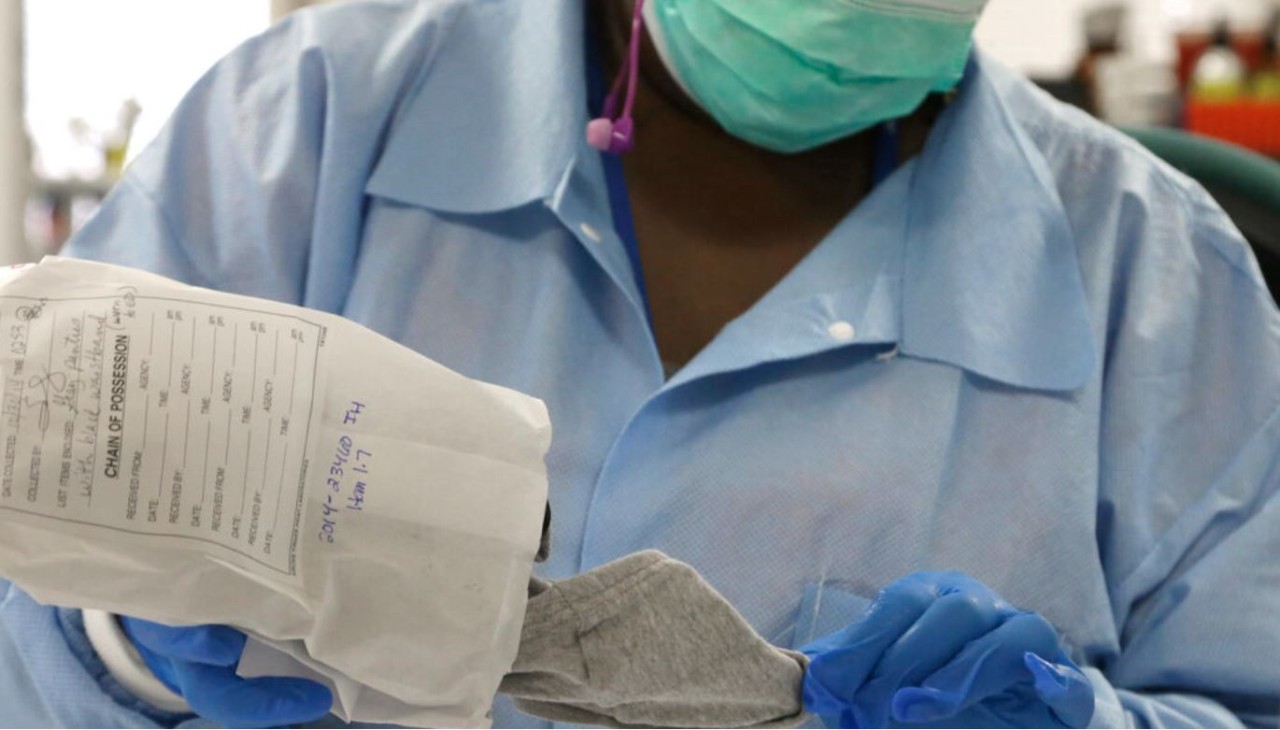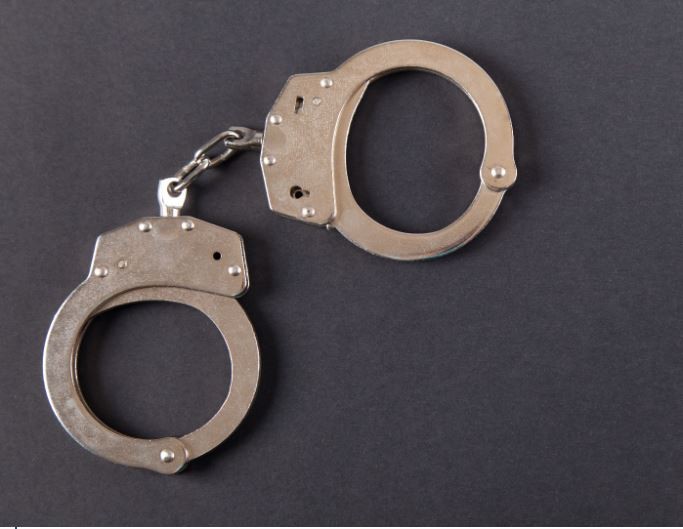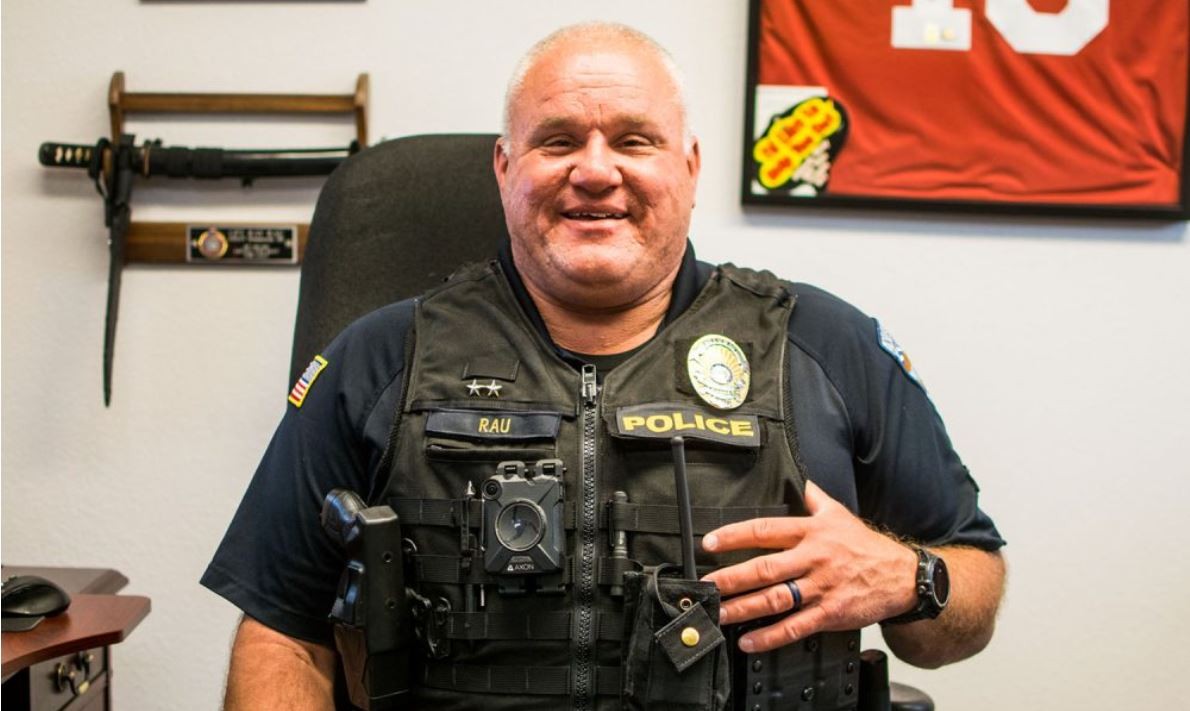Victims in 40 states can track their sexual assault kits
Sexual assault survivors can now track their rape kits in most states
September 9th, 2023
It can take hours for a sexual assault victim to undergo the multiple swabs, hair samples, blood and urine collections, and other invasive procedures of a sexual assault examination. And then it can take months, sometimes years, for investigators to process that evidence kit.
But now, responding to demands from survivors and their advocates, more states have committed to tackling yearslong investigative backlogs — and dozens are adopting tracking systems that allow patients to follow the forensic paths of their own sexual assault kits.
The tracking systems aim to address historical challenges, such as inadequate forensic evidence handling, delays in case processing and underreporting of assaults. The systems can streamline communication among law enforcement agencies, forensic laboratories and survivors, for example. Perhaps most importantly, the accountability and transparency that come with tracking the assault kits also can speed up a case's resolution.
"The overarching purpose is to restore dignity and sort of try to tip the balance of power from folks who have been sexually assaulted," said Colorado state Rep. Meg Froelich, a Democrat who authored her state's rape kit tracking law, in an interview with Stateline.
"What we're trying to do is get folks to come forward," she said, "and to feel that the process is there for them to achieve what they need for healing and closure."
At least 40 states and the District of Columbia have implemented or committed to establishing a sexual assault kit tracking system in the past nine years, including several coming on board this year, according to the End the Backlog website run by the nonprofit advocacy group Joyful Heart Foundation. The foundation supports survivors of sexual assault, domestic violence and child abuse.
Alaska and Florida launched their online sexual assault kit tracking portals this summer. Colorado and Louisiana enacted legislation in May and June, respectively, to establish their own tracking systems.
Advocates say providing a tool to monitor the progress of their kits gives survivors a sense of control and participation in the investigative process, which can be crucial in their healing journey. Moreover, the transparency offered by tracking systems ensures that law enforcement agencies are held accountable for timely kit processing.
"This is just one more tool to evaluate the whole entire system, whether it's the [sexual assault nurse examiners], the crime lab, the police departments, so that we are doing the best service to these survivors," said Monica Taylor, the special projects coordinator for the Louisiana attorney general's office, in an interview with Stateline.
"This tracking system is going to help them go from being a victim to being a survivor, and taking some of the control and power back into their lives," she said.
Tracking systems also allow advocates to fully support survivors who may have concerns about delays, said Nicole Kass Colvin, the manager of coordinated community responses for the Ohio Alliance to End Sexual Violence. Prior to the launch of Ohio's tracking system in 2020, monitoring a kit's progress was challenging, often requiring survivors to contact law enforcement for updates, Colvin recalled.
"If there was a mistake made somewhere within the process, we [now] can see where that error is and rectify it, rather than that kit being lost for years with no idea of knowing what happened or where it might be," she said.
Sexual assault kit tracking systems are typically web portals designed to trace the kits' movement throughout their chain of custody.
With the collection of a rape evidence kit at a medical facility, a unique tracking or serial number is assigned and provided to the survivor. Law enforcement typically picks up the kits, then sends them to a crime lab for testing.
After testing, the kit may be stored at the crime lab or another secure location for several months or years, depending on the state's storage requirements.
The evidence can be used to link the assault to a suspect in existing DNA databases, or to develop a DNA profile that can be used in the future. Processing times for rape kits vary by state; for instance, it can take up to 120 days in Florida, 60 days in Alaska and just 30 days in Ohio
Addressing backlog, empowering survivors
The exact scope of the rape kit testing backlog remains unclear. But as of Sept. 7, there are at least 59,894 untested kits in 23 states, according to data collected by the Joyful Heart Foundation.
Iowa had just over 2,600 untested kits, according to the Joyful Heart Foundation. That comes after the Iowa Attorney General's Office reported in 2o21 that it had cleared a backlog of over 4,000 kits. The kits had been collected before April 2015 and never tested. The testing was accomplished with a $3 million federal grant.
Among the contributing factors to the backlog are victim-blaming attitudes, budget cuts, reduced crime lab staff, and bias against women and victims of sex crimes, according to a white paper published in 2017 by the U.S. Justice Department's Office on Violence Against Women.
In recent years, the issue has eroded public trust in law enforcement, the agency noted. In some instances, untested rape kits were linked to cases dating back to the 1980s.
Sexual assault survivors, from Houston in 2020 to Memphis in 2023, have filed class-action lawsuits against city officials over processing delays.
A statewide sexual assault kit tracker has quickened the pace of forensic testing in some states, and in some cases allowed states to identify and address delays. Several states have reduced their backlogs of unsubmitted rape kits, those that were never even sent to a lab for testing.
Alaska, for example, cleared its backlog of untested kits that were held by law enforcement in 2021 and completed result analyses in 2022, according to the Alaska Department of Public Safety's communication director, Austin McDaniel.
In 2022, 75 untested sexual assault kits were found at the state's crime lab — down from 558 in 2021, according to statistics published by the state's public safety department.
Similarly, New Hampshire reduced its backlog from 582 kits in 2019 to just one kit in 2022, according to an analysis by USAFacts, a nonpartisan data center.
The kits have significant investigative value. In Ohio, for example, state investigators plowing through a backlog of 13,931 kits found 5,349 hits in a DNA database. The state has now cleared its backlog entirely.
North Carolina and Michigan also have reduced their backlog significantly. From 2018 to 2022, North Carolina saw a 99% reduction in unsubmitted kits, while Michigan achieved a 95% reduction during the same period. USAFacts also found that in some states, such as Louisiana and Maryland, the number of unsubmitted kits held by law enforcement increased between 2018 and 2022. Both states' tracking systems are currently in development.
This tracking system is going to help them go from being a victim to being a survivor, and taking some of the control and power back into their lives.
– Monica Taylor, special projects coordinator for the Louisiana attorney general's office
Under Louisiana's new law, the state's sexual assault kit tracking system will be created by the Louisiana State Police. The agency must have a plan by January, and all police and health care providers who store rape kits must fully participate by July 1, 2024.
Rape kit tracking systems play a pivotal role in empowering survivors and enhancing transparency in the criminal justice system, said Morgan Lamandre, the president and CEO of Sexual Trauma Awareness & Response, a Louisiana-based nonprofit advocacy and support group.
"Having this system in place for Louisiana is another step in the right direction for survivors to be taken seriously, for survivors to be treated with real fairness, dignity and respect," Lamandre said in an interview with Stateline.
Technology and funding
The path to establishing state tracking systems varies widely. Some states have passed laws, while others have set up their trackers through agency action or funding priorities, according to Mateo Cello, a policy implementation associate with the Joyful Heart Foundation. New Hampshire, for example, secured federal money in 2019 to develop a tracking system, but doesn't have a law on the books.
In some states, tracking systems exist only in specific cities or counties. Before the launch of Michigan's statewide system, Wayne County partnered with UPS to create a sexual assault kit tracking system in Detroit, using the same technology the company uses to track packages.
Technological approaches also differ, with some states buying software from private companies and others, such as Idaho, building their systems in-house. Multiple vendors and systems, such as SAMS-Track and Track-Kit by Invita Healthcare Technologies, now sell tracking software for evidence kits. Iowa's program, implemented in 2020, uses Track-Kit.
Some states have relied on their own coffers to fund rape kit tracking projects, while others have used grants awarded by the Justice Department's Office on Violence Against Women or the Sexual Assault Kit Initiative, which is funded by the Bureau of Justice Assistance, a federal agency that awards grants for state, local and tribal criminal justice projects.
"One of the main barriers is the initial cost," Cello said. "A lot of states get scared by how much implementing a tracking system can cost, so these federal grants definitely help ease some of the states' worries in terms of creating a tracking system."
The Sexual Assault Kit Initiative has awarded more than $140 million since 2015 to 23 state agencies, three state law enforcement agencies and nine state attorney general offices in 30 states. Much of the money goes to tracking, though some states have used it to tackle backlogs or hire staff.
"There's definitely been a lot of progress. That doesn't mean that it's done. There's still a lot more work to do," Cello said.
"We'd like to see all 50 states get a tracking system."



